News
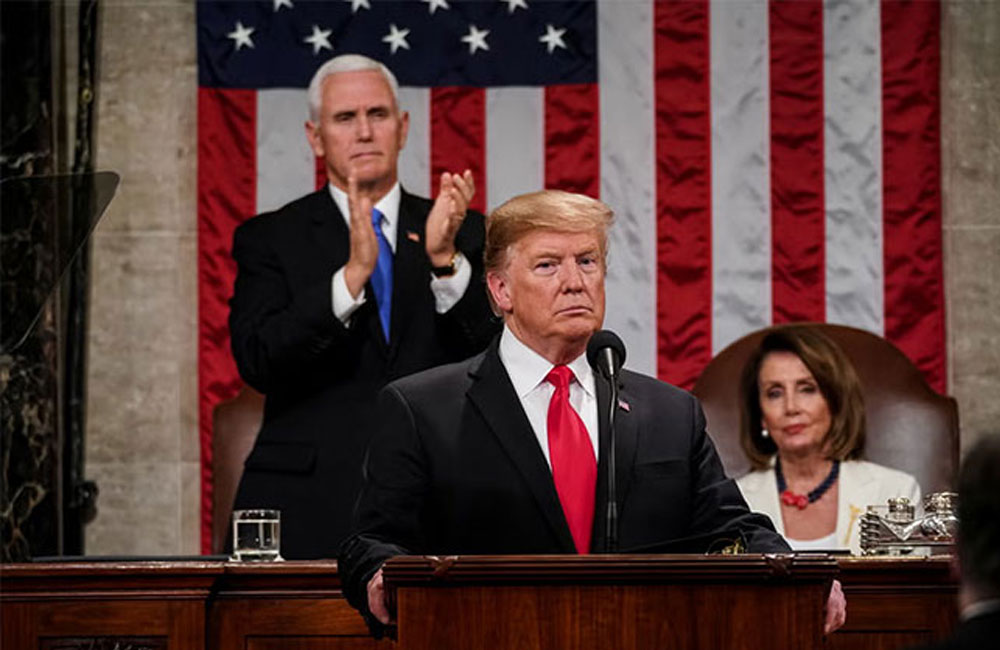
President Trump set to deliver first State of the Union address of his second term
U.S. President Donald Trump will deliver the traditional State of the Union address to Congress on Tuesday at a fraught moment for his presidency, with his approval ratings slumping, anxieties rising over Iran, and Americans struggling with the cost of living as the November midterm election nears.
The televised prime-time speech to Congress, his second in the 13 months since returning to the White House, offers Trump a chance to persuade voters to keep Republicans in power. But it comes as he faces stiff political headwinds at home and abroad.
The appearance follows a turbulent few days for his administration, including a Supreme Court decision invalidating his global tariff regime and new data showing the economy slowed more than expected while inflation accelerated.
The Department of Homeland Security is mostly shut down due to a dispute between congressional Republicans and Democrats over the administration’s aggressive immigration tactics, following the fatal shootings of two U.S. citizens in Minneapolis.
A Reuters/Ipsos poll showed six in ten Americans, including 30% of Republicans, think Trump has become erratic as he ages.
Meanwhile, Trump has struggled to turn the page on the scandal surrounding convicted sex offender Jeffrey Epstein, and opposition Democrats have invited several people who accuse Epstein of abusing them to the speech.
A White House official said Trump will announce a plan that would require tech companies to pay increased electricity costs in communities where new AI data centers are being built.
Fox News anchor Bret Baier said Trump will also call for new personal and corporate tax cuts.
A PUBLIC CASE AGAINST IRAN
Trump, who has openly coveted the Nobel Peace Prize and set up his own “Board of Peace,” appears to be inching closer to a military conflict with Iran over its nuclear program, moving warships to the Middle East and developing plans that could include a change of government, according to U.S. officials.
Tuesday’s speech could offer Trump a chance to mount for the first time a public case for military intervention. Two White House officials, speaking on condition of anonymity, said Trump will discuss his plans but did not offer details.
He will also tout his record of brokering peace deals, they said. He will be speaking on the fourth anniversary of Russia’s invasion of Ukraine, a reminder that he has yet to resolve the war he once said he could end “in 24 hours.”
The president is expected to address the Supreme Court’s decision on tariffs, arguing that the court erred and outlining alternative laws he can use to reconstitute most of the levies.
Trump reacted with fury to the ruling last week, targeting several justices with personal attacks. A repeat performance on Tuesday could make for some awkward moments; at least some of the court’s nine justices are expected to attend.
White House aides and Republican campaign advisers, eyeing a challenging congressional midterm election, have urged Trump to focus on Americans’ economic worries. Trump’s victory in the 2024 election was based in large part on his promises to ease the cost of living, but opinion polls show voters are unconvinced by his efforts so far.
Trump has struggled to stay on message, straying in public speeches from the economy to his long list of grievances while at other times declaring he has already solved the problem.
One of the White House officials said Trump will “claim victory on the economy,” a message Republican lawmakers running for reelection are unlikely to welcome. He will argue that he inherited a poor economy from Democratic predecessor Joe Biden and that Democrats have overstated affordability concerns, both officials said.
Trump will point to stock market gains, private-sector investments and his tax cut legislation as evidence that he has helped the economy, the officials said. The president will also tout his tough border policies and his deportation campaign, despite polls showing most Americans believe his administration has gone too far in rounding up undocumented immigrants.
“This is the one opportunity the president has where the whole world is looking at what he has to say, and this is his opportunity to summarize everything that he’s done and not go off script,” said Amanda Makki, a Republican strategist and former Florida congressional candidate.
Trump, who has a propensity for ad-libbing, said on Monday his address would be lengthy. His 100-minute speech last March - technically not a State of the Union speech, but otherwise similar - was the longest presidential address to Congress in modern history.
The White House officials said this year’s edition was crafted with room for unscripted moments.
“We are planning around it,” one official said.
SOME DEMOCRATS OPTING OUT
Last year, some Democrats interrupted Trump’s speech with jeers before walking out in protest. This time around, more than 20 Democrats in the House of Representatives and Senate plan to skip the speech altogether in favor of an outdoor rally on the National Mall.
Senator Jeff Merkley of Oregon, one of those Democrats, told reporters on Monday the event would offer a more “honest description” of Trump’s record, rather than the “propaganda push” of the speech.
Virginia Governor Abigail Spanberger, whose decisive victory in November was seen as an early midterms warning sign for Republicans, will deliver the official Democratic response to the speech.
Democratic U.S. Senator Alex Padilla of California, who was shoved to the ground and handcuffed last year after attempting to ask a question of Homeland Security Secretary Kristi Noem at a press conference, will give the Spanish-language rebuttal.
Source:adaderana.lk
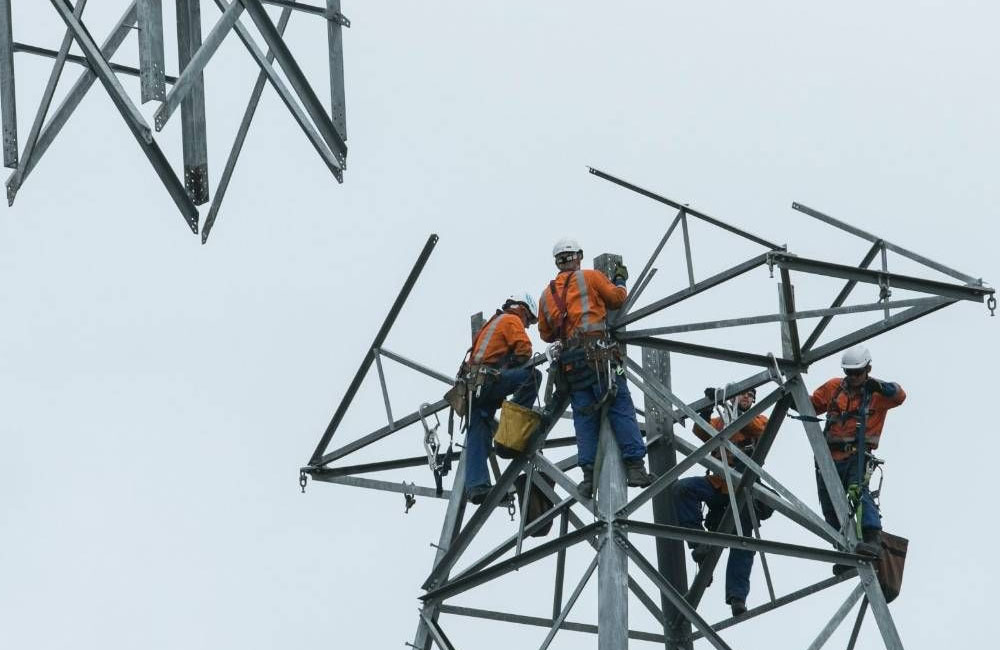
CEB trade unions threaten TU action after O/L exams
Trade unions of the Ceylon Electricity Board (CEB) have once again cautioned the government that they would resort to trade union action as soon as the GCE Ordinary Level examinations conclude, if solutions are not provided to their eight demands and if the liquidation of the CEB is gazetted.
They stated that if a wrong decision is taken for unlawful restructuring without listening to their demands, they would be compelled to take this decision within the next 48 hours, even unwillingly.
The unions further said that if employee issues and energy concerns are ignored, and if a proper energy policy is not established, but instead a gazette notification is issued arbitrarily, they will definitely take this decision without further notice.
They stressed that this serious decision could gravely affect the country and its citizens, and that the government must bear full responsibility.
The CEB unions added that they are not prepared to carry out such action while children are sitting for the GCE Ordinary Level examinations, and that their restraint is only because the exams are being held.
This was stated at a press conference held in Colombo yesterday (23 Feb) by representatives of the CEB Engineers’ Union, including Executive Committee Member Engineer Sandaruwan Manchanayake; Deputy Chairman of the Technical Engineers and Officers’ Union, Nandana Udaya Kumara; Chairman of the Electrical Technicians’ Union, Kosala Abeysinghe; and General Secretary of the Independent Workers’ Union, Prabath Priyantha.
The warning comes after employees who have applied for the Voluntary Retirement Scheme (VRS) of the CEB recently stated that the CEB Chairman has confirmed the Gazette notification announcing the dissolution of the Board will be issued on February 28.
They had been further informed that the Government will ensure that compensation payments to employees who choose retirement will be disbursed without complications.
(Source:Newswire)
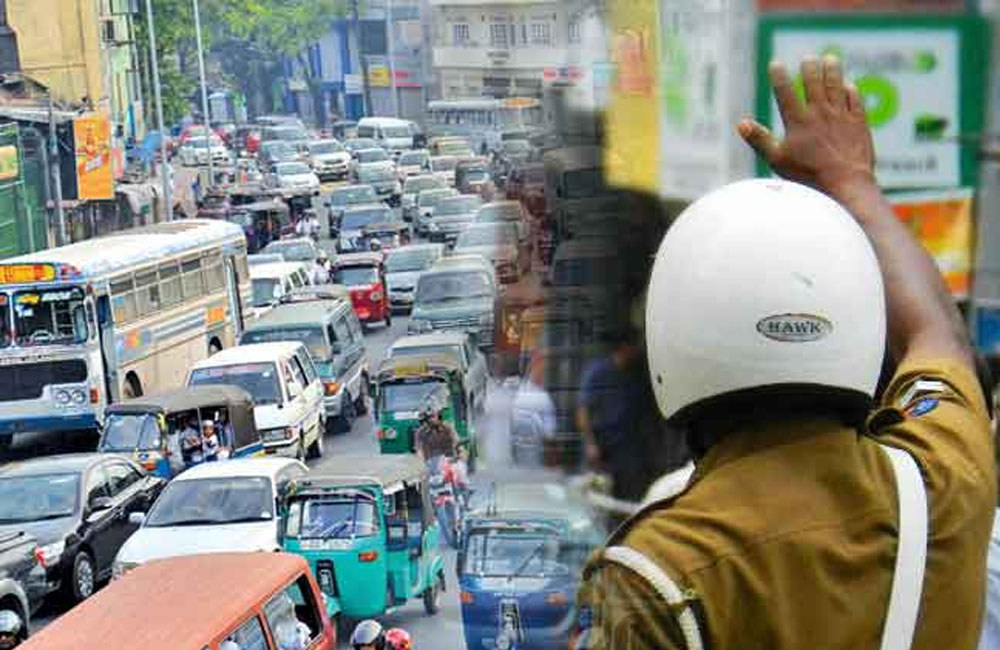
Special Traffic Plan Implemented in Colombo for Sri Lanka–New Zealand T20 Clash
A comprehensive traffic management programme has been introduced today to facilitate smooth movement ahead of the upcoming ICC Men's T20 World Cup fixture between the Sri Lanka national cricket team and the New Zealand national cricket team in Colombo.
The match is set to begin at 7.00 p.m. tomorrow at the R. Premadasa International Cricket Stadium, where a significant turnout of spectators is anticipated.
According to the Sri Lanka Police, traffic restrictions will be enforced on several roads surrounding the stadium to reduce congestion and maintain public safety. Motorists have been encouraged to avoid these areas where possible and cooperate with traffic officers on duty.
The roads affected by the special traffic plan include Vincent Perera Mawatha, Britto Babapulle Place, Sebastian Canal Road, 100-Foot Road, Temple Road, Sri Bodhiraja Mawatha, Maligawatte Lane, Jumma Masjid Road, and Saddharma Mawatha.
Meanwhile, authorities have allocated specific parking locations for spectators. These include the stadium’s main car park, Grandpass Mati Park, Sathosa car park, areas along Sebastian Canal Road, Applewatte, Kovil Road, and both sides of the 100-Foot Road.
To further strengthen security during the event, police officers and intelligence personnel, including those in plain clothes, will be deployed in and around the venue. Officials emphasized that these measures are intended to ensure the safety of spectators and minimize disruptions during the international cricket encounter.

Fisherman Arrested in Maggona for Illegal Madel Fishing Using Tractor-Mounted Winches
A fisherman was taken into custody yesterday (23) for illegally conducting seine net (Madel) fishing using tractor-mounted winches, authorities confirmed.
The suspect was apprehended by officers from the Kalutara District Fisheries Office while actively operating the equipment near the Kudawa Fisheries Harbour.
During the operation, officials also seized two tractors fitted with winches that were being used in the unlawful fishing activity. The arrested individual, who is a resident of Maggona, is expected to be presented before the Kalutara Magistrate’s Court for legal proceedings.
This arrest follows recent tensions within the fishing community over the government’s prohibition on using tractor-mounted winches for Madel fishing. Earlier this month, a group of fishermen staged a Satyagraha protest outside the Presidential Secretariat, urging authorities to lift the restriction.
The protest, which began on February 5, continued for nine days before it was called off after discussions between fishermen’s representatives and Anura Kumara Dissanayake on February 13. Authorities have not yet announced any changes to the existing ban, and enforcement actions remain ongoing.
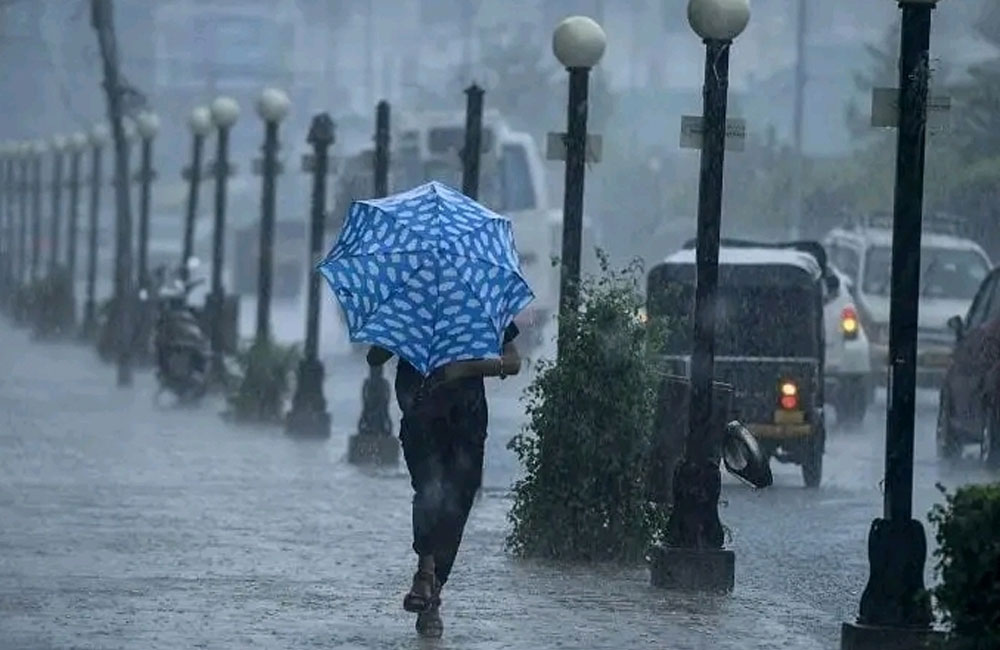
Afternoon Showers Expected in Southern and Several Inland Districts
The Department of Meteorology has predicted that showers or thundershowers may develop in parts of the Southern Province, as well as in the Ratnapura District and Monaragala District after 2.00 p.m. today (25).
Weather conditions across most other parts of Sri Lanka are expected to remain largely clear and stable throughout the day.
In addition, early morning mist is likely in several regions, including the Central Province, Sabaragamuwa Province, Western Province, and North Western Province, as well as in districts such as Anuradhapura District, Galle District, Matara District, Mannar District, and Vavuniya District.
Authorities have urged the public to remain alert and take necessary safety measures to reduce the risk of damage or injury caused by sudden gusty winds and lightning associated with thunderstorms.
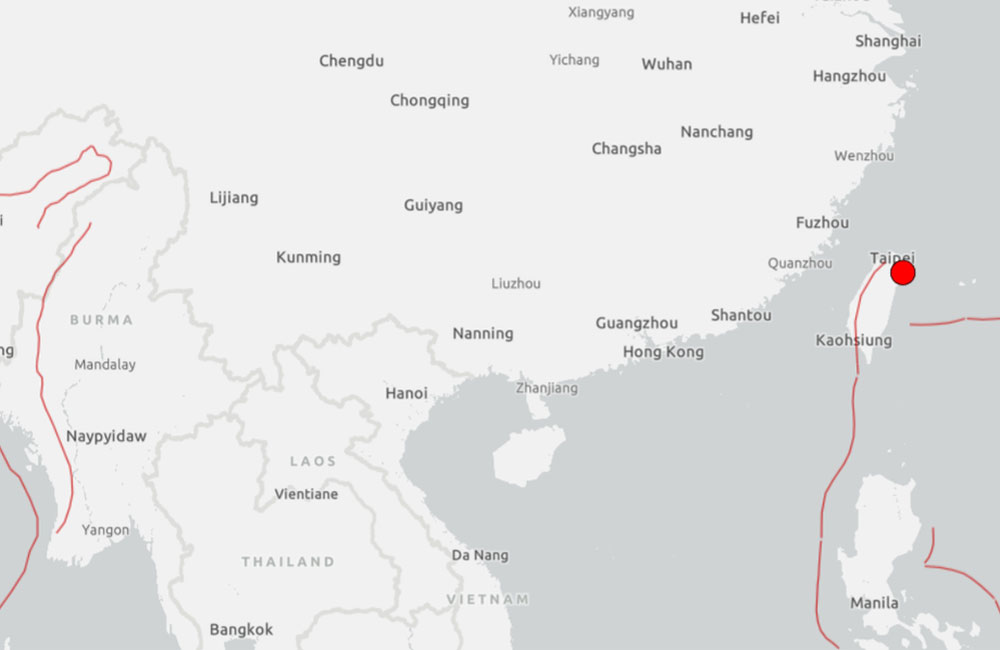
Taiwan rattled by 5.6 magnitude quake, no reports of damage
A 5.6 magnitude earthquake struck just off the coast of Taiwan’s northeastern county of Yilan on Tuesday, the island’s weather administration said, with no reports of damage.
The quake briefly shook buildings in the capital, Taipei. The quake had a depth of 66.8 km (41.5 miles), the weather administration said.
The fire department said the quake’s epicentre was 16.9 km (10.5 miles) from the county government seat and in coastal waters.
Taiwan lies near the junction of two tectonic plates and is prone to earthquakes.
More than 100 people were killed in a quake in southern Taiwan in 2016, while a 7.3 magnitude quake killed more than 2,000 people in 1999.
Source:adaderana.lk
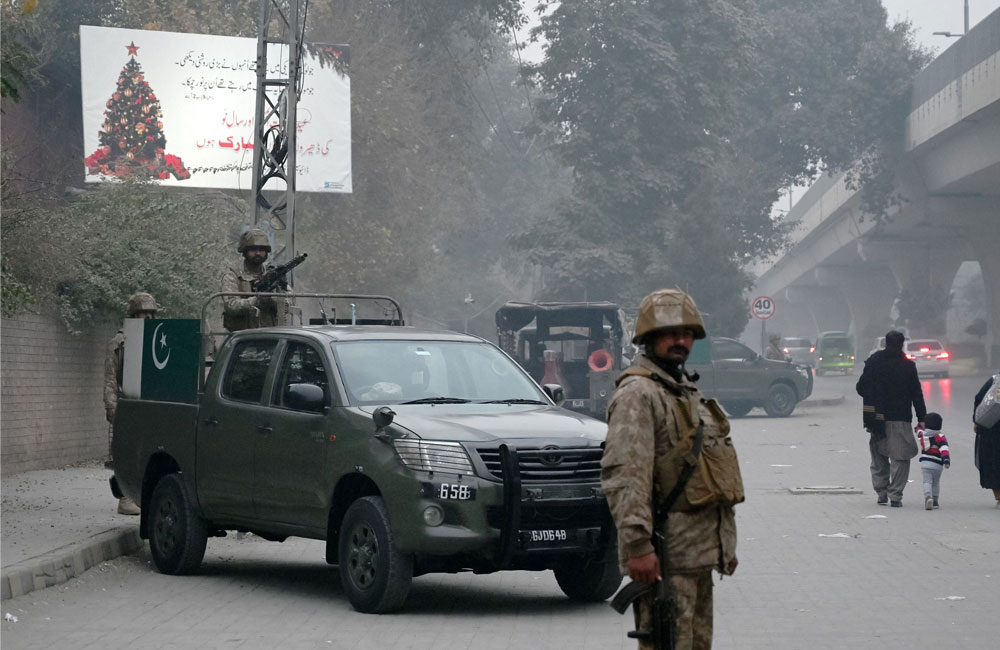
Gunmen kill five police officers in northwest Pakistan near Afghan border
Gunmen ambushed a police vehicle and killed five officials in northwest Pakistan on Tuesday, police said, as the South Asian nation struggles to quell a rising wave of militant attacks and faces renewed border tensions with neighbouring Afghanistan.
The ambush in Kohat city, situated along the border with Afghanistan, comes a day after a drone and gun attack killed three paramilitary troops in the nearby city of Karak.
“Several gunmen attacked a police patrol. A senior officer is among five policemen dead. They also burnt the vehicle,” a Kohat police spokesperson said.
No group claimed responsibility for either of the attacks.
Pakistan carried out air strikes in Afghanistan on Saturday - at the start of the Muslim holy month of Ramadan - in what it said were militant targets responsible for a spate of recent suicide bombings on Pakistani soil.
Kabul and the United Nations have said that the strikes killed at least 13 civilians.
Islamabad has said militant groups have been provided sanctuary in Afghanistan, from where they plan and execute attacks across the border.
Afghanistan has denied the charge, saying the militancy is Pakistan’s internal problem.
“Pakistan’s attack was an act of terror that targeted civilians on Afghan soil and violated Afghanistan’s sovereignty,” Taliban government spokesperson Zabihullah Mujahid said on Tuesday.
The districts bordering Afghanistan have long been home to a variety of Islamist militant groups, including the Pakistani Taliban, also known as Tehreek-e-Taliban Pakistan, who have fought against the state since 2007.
Source: adaderana.lk
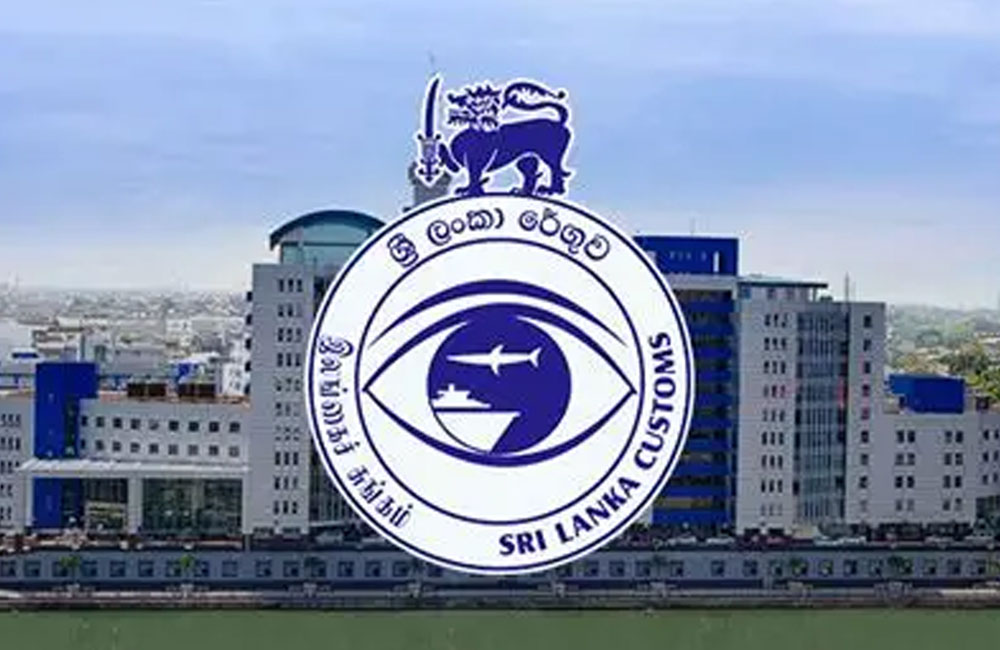
Customs Officers Begin Trade Union Action Over Long-Pending Promotions
The Customs Trade Union Alliance has initiated trade union action beginning today (24), highlighting several outstanding concerns that remain unaddressed, including long-delayed promotions.
Union representatives stated that these matters have been repeatedly brought to the attention of relevant authorities over the past six years, but no satisfactory solutions have been reached.
As part of the initial phase of industrial action, Customs officers across all offices islandwide will report to duty wearing black armbands as a mark of protest.
Meanwhile, a special meeting involving the Ministry of Finance Sri Lanka, the Public Service Commission Sri Lanka, and other stakeholders has been scheduled for February 26, 2026, to discuss the issues raised by the union.
Following the outcome of that discussion, representatives of the Customs Trade Union Alliance are expected to convene on February 27 to determine their next steps regarding further industrial action.
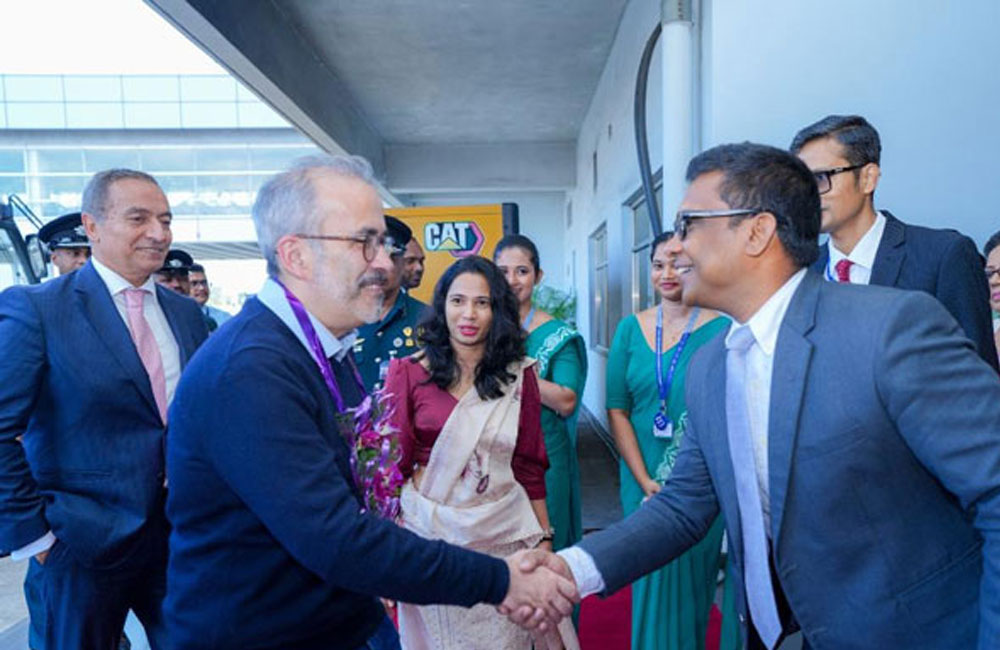
Portugal Foreign Minister Paulo Rangel Arrives in Sri Lanka for Official Two-Day Visit
Portugal’s Minister of Foreign Affairs, Paulo Rangel, arrived in Sri Lanka this morning (24) to begin a two-day official visit aimed at enhancing bilateral relations between the two nations.
He was accompanied by a delegation of four senior representatives from Portugal’s Ministry of Foreign Affairs. The group landed at Bandaranaike International Airport (BIA) at 8:35 a.m., arriving from Dubai on Emirates flight EK-650.
Upon arrival, Minister Rangel and his delegation were formally received at the airport’s VIP lounge by Sri Lanka’s Deputy Minister of Ports and Civil Aviation, Janitha Ruwan Kodithuwakku, along with several senior officials representing the Ministry of Foreign Affairs.
The visit is expected to support diplomatic engagement and cooperation between Sri Lanka and Portugal across areas of mutual interest.

Suspect Arrested in Batapola with Stolen Motorcycle Using Fake Number Plates
Officers from the Sri Lanka Police have taken a suspect into custody in the Batapola area of Galle after uncovering a stolen motorcycle concealed inside a residence.
The operation was conducted by the Galle Divisional Crime Investigation Bureau following intelligence received about the hidden vehicle. During the raid, police recovered a motorcycle that had been fitted with falsified number plates.
The suspect, a 30-year-old resident of Ethkandura, was arrested at the location.
Initial inquiries revealed that the motorcycle had been reported stolen in 2024 within the Karandeniya Police Division. Further investigations also indicated that the suspect had links with individuals believed to be involved in organized criminal activities.
Authorities are continuing their investigation to determine whether the stolen motorcycle had been used in any criminal offences.
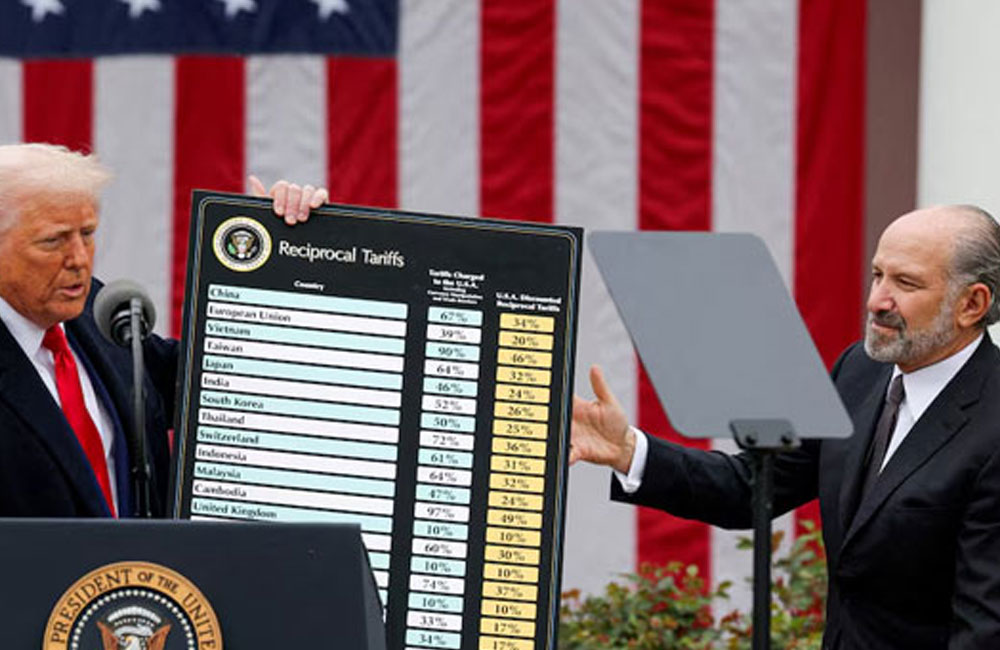
Trump’s new tariffs shift focus to balance of payments; economists see no crisis
President Donald Trump’s temporary 15% tariffs to replace those struck down by the U.S. Supreme Court are meant to resolve a problem that many economists say does not exist: a U.S. balance of payments crisis, making them potentially vulnerable to new legal challenges.
Hours after the high court on Friday struck down a huge swath of tariffs Trump had imposed under the International Emergency Economic Powers Act, the president announced the new duties under Section 122 of the Trade Act of 1974 -- a never-used statute that even his own legal team dismissed as irrelevant months ago.
Collections of the new 15% tariffs began at midnight on Tuesday as IEEPA tariff collections of 10% to 50% halted.
The Section 122 law allows the president to impose duties of up to 15% for up to 150 days on any and all countries to address “large and serious” balance-of-payments deficits and “fundamental international payments problems.”
Trump’s tariff order argued that a serious balance of payments deficit existed in the form of a $1.2 trillion annual U.S. goods trade deficit and a current account deficit of 4% of GDP and a reversal of the U.S. primary income surplus.
Some economists, including former International Monetary Fund First Deputy Managing Director Gita Gopinath, disagreed with the Trump administration’s alarm.
“We can all agree that the U.S. is not facing a balance of payment crisis, which is when countries experience an exorbitant increase in international borrowing costs and lose access to financial markets,” Gopinath told Reuters.
Gopinath rejected the White House’s claim that a negative balance on the U.S. primary income for the first time since 1960 was evidence of a large and serious balance of payment problem.
She attributed the negative balance to a large increase in foreign purchases of U.S. equities and risky assets over the past decade, which outperformed foreign equities over this period.
Mark Sobel, a former U.S. Treasury and IMF official, said that balance of payments crises are more associated with countries that have fixed exchange rates, and noted that the floating-rate dollar has been steady, the 10-year Treasury yield fairly stable, with U.S. stocks performing well.
Josh Lipsky, chair of international economics at the Atlantic Council think tank, agreed, noting that a balance of payments crisis occurred when a country could not pay for what it was importing or was unable to service foreign debt. That was fundamentally different from a trade deficit, he added.
Brad Setser, a currency and trade expert at the Council on Foreign Relations who served as a senior adviser to the U.S. Trade Representative in the Biden administration, took a somewhat contrarian view, arguing in lengthy X posts on Sunday that the Trump administration may have a reasonable case that there is a “large and serious” balance of payments deficit.
He noted that the current account deficit was far higher than when then-president Richard Nixon erected tariffs in 1971 to address a balance of payments crisis, and the U.S. net international investment position is much worse. This “gives the administration a real argument,” in favor of its tariffs, Setser wrote.
The White House, U.S. Treasury and U.S. Trade Representative did not immediately respond to requests for comment about the use of Section 122.
WRONG STATUTE FOR THE JOB
Despite the Trump administration’s new focus on balance of payments, the Justice Department had previously argued that Section 122 was the wrong statute to handle a national emergency over the trade deficit.
In court filings in its defense of IEEPA tariffs, the Justice Department said Section 122 would not have “any obvious application here, where the concerns the president identified in declaring an emergency arise from trade deficits, which are conceptually distinct from balance-of-payments deficits.”
Neal Katyal, who argued at the Supreme Court on behalf of plaintiffs challenging the IEEPA tariffs, told CNBC that the Trump administration’s stance against the use of Section 122 for a trade deficit will make those tariffs vulnerable to litigation.
“I’m not sure it will necessarily even need to get to the Supreme Court, but if the president adheres to this plan of using a statute that his own Justice Department has said he can’t use, yeah, I think that’s a pretty easy thing to litigate,” Katyal said.
It is unclear who might take the lead in challenging the Section 122 tariffs.
Sara Albrecht, chair of the Liberty Justice Center, a nonprofit, public-interest law firm representing several small businesses that challenged the IEEPA tariffs, said the group would closely monitor any new statutes being invoked.
Albrecht did not reveal any future litigation strategy, adding: “Our immediate focus is simple: making sure the refund process begins and that checks start flowing to the American businesses that paid those unconstitutional duties.”
In its ruling, the Supreme Court did not give instructions regarding refunds, instead remanding the case to a lower trade court to determine next steps.
Source:adaderana.lk

Storm paralyzes travel, forcing more than 8,000 US flight disruptions
U.S. airlines are set to add flights on Tuesday, even as they wrestle with thousands of scrubbed flights the day after a powerful Northeast winter storm forced more than 8,000 cancellations and delays.
The storm blanketed parts of the U.S. Northeast, closing roads and cancelling schools.
With cancellations frustrating travelers on Monday evening, U.S. carriers including United Airlines UAL.Osaid they had early plans to ramp up operations on Tuesday, but cautioned that conditions remain challenging.
On Tuesday, 7% of U.S. flights are expected to be cancelled, down from just over 19% on Monday, according to data from analytics firm Cirium as of late afternoon. A typical day in the U.S. domestic market has 1% cancellations.
Southwest Airlines LUV.Nsaid its plan “is on track to start ramping up operations tomorrow, if conditions permit us to safely do so.”
The Dallas-based low-cost carrier canceled about 7% of flights on Monday. That was less than its rivals due to the carrier’s limited Northeast exposure.
American Airlines AAL.O said it had been able to resume operations at Washington Reagan National and Philadelphia.
Delta DAL.N and American both said they expect to resume operations at New York’s LaGuardia and JFK airports and Boston late on Tuesday morning. Delta also expects to resume Newark flights on Tuesday.
JetBlue JBLU.O was especially hard hit, canceling about 80% of flights due to the storm on Monday, according to data from FlightAware. The airline said in total it has cancelled 1,600 flights through Wednesday.
U.S. passenger railroad Amtrak canceled dozens of trains between New York and Boston and on other routes in the Northeast. Several states ordered motorists to remain off roads for non-essential travel for extended periods due to the significant snowfall.
American, Delta and United all canceled about 20% of flights on Monday.
The blizzard dropped more than 2-1/2 feet of snow (76.2 cm) across parts of the U.S. Northeast.
Source:adaderana.lk
Page 5 of 681